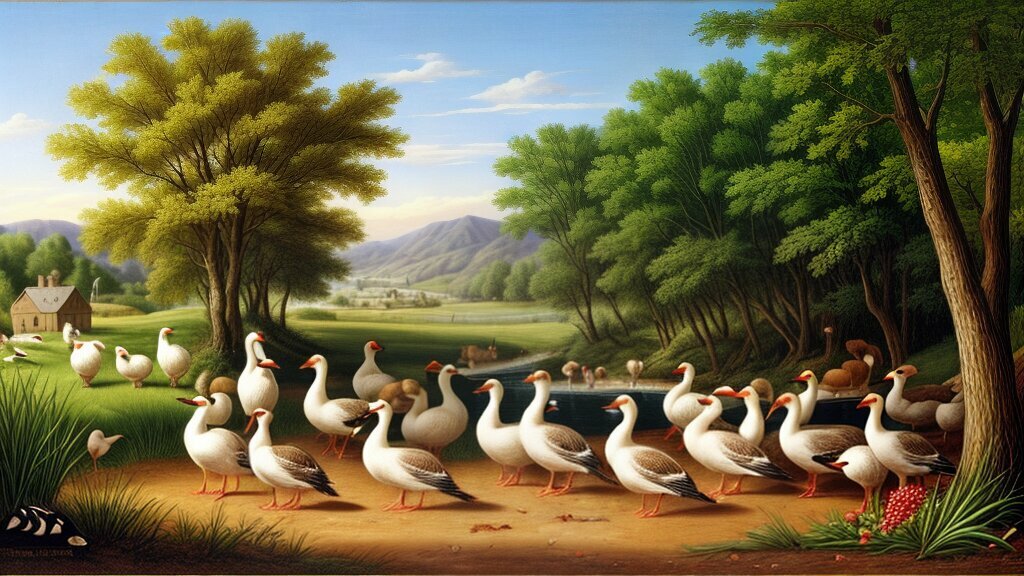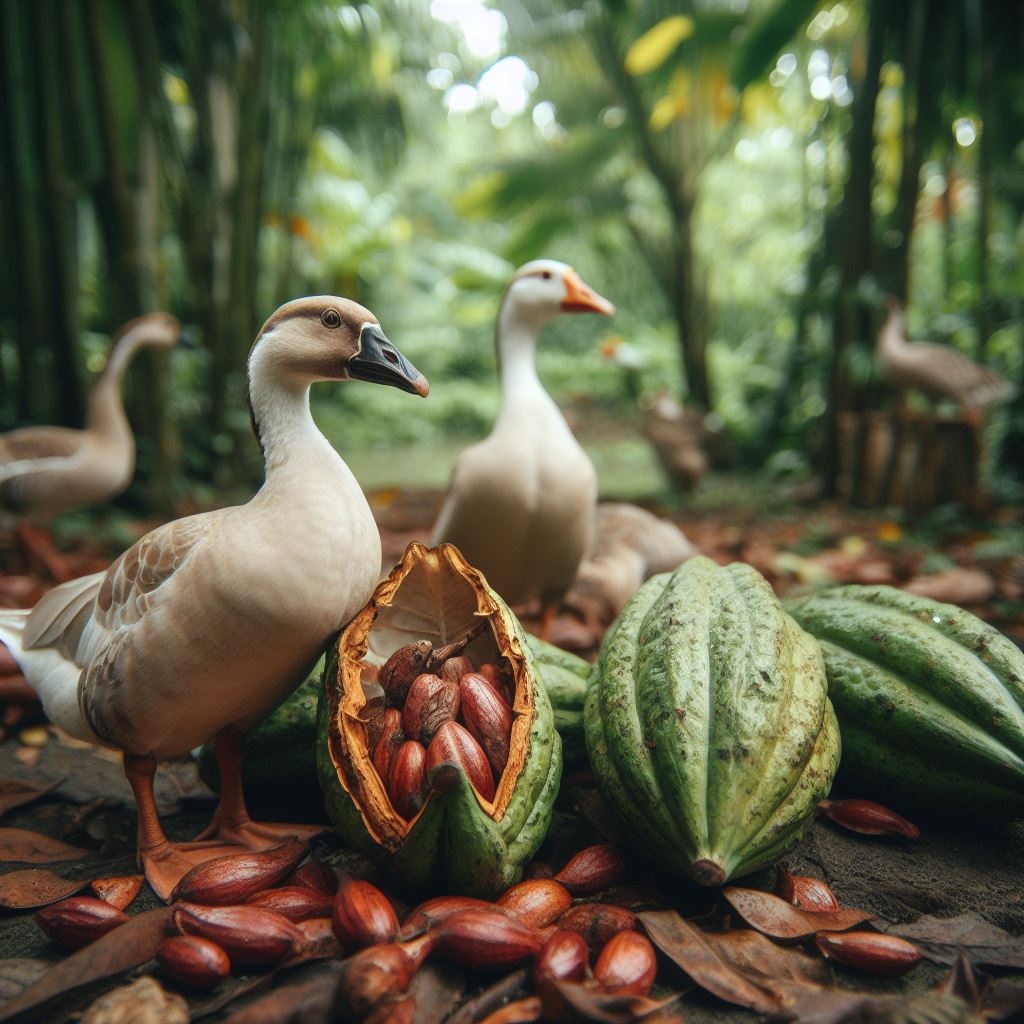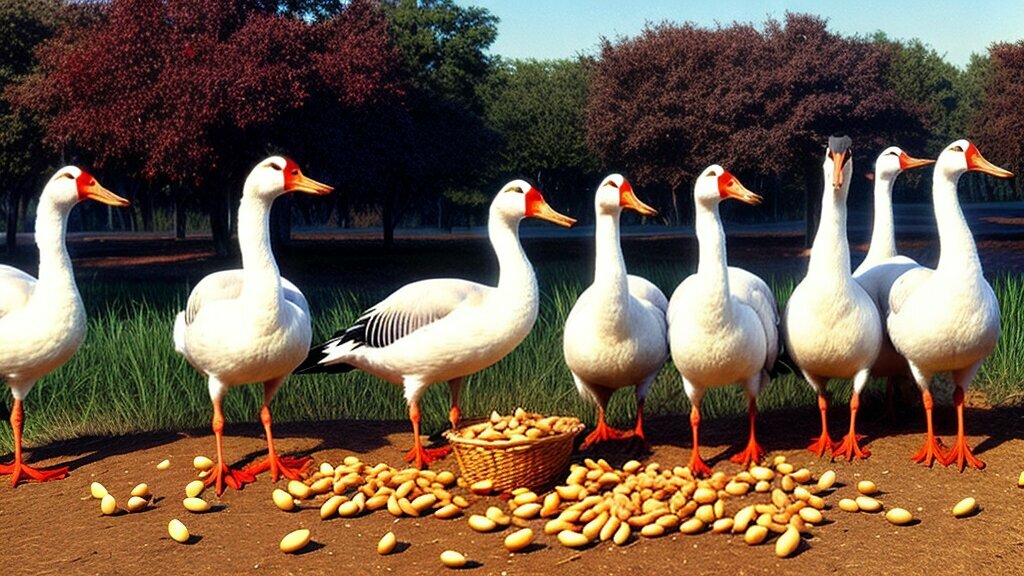Can Geese Eat Grapes? Exploring the Feathery Friends’ Diet

Table of content:
Geese, like many animals, have specific dietary needs that must be met for them to stay healthy. But what about grapes? Can geese eat this popular fruit?
Before delving into the specifics of geese and grapes, it’s important to first understand the overall diet of these feathered friends. In general, geese are herbivores. They primarily eat grasses, weeds, and other vegetation found in their natural habitats, such as ponds, lakes, and meadows. In captivity, they may also be fed commercial bird feed or birdseed mixes.
So, can geese eat grapes? While grapes are not a part of the typical goose diet, they can be safely consumed in moderation. Like any new food, it’s important to introduce grapes slowly and monitor your geese for any adverse reactions. While some geese may enjoy the taste of grapes, others may not be interested at all.
Key Takeaways:
- Geese are primarily herbivores and eat grasses, weeds, and other vegetation.
- Grapes can be safely consumed by geese in moderation.
- Introduce grapes slowly and monitor your geese for any adverse reactions.
Understanding the Geese Diet
Geese are herbivores and require a diet that is high in fiber, vitamins, and minerals. They are able to graze on a variety of plants, grasses, and leaves, and they also enjoy snacking on insects and small aquatic animals.
Safe Foods for Geese
When it comes to feeding geese, it is important to offer them a balanced diet that meets their nutritional needs. Safe options for geese include:
- Grasses such as clover, ryegrass, and fescue
- Leafy greens such as kale, lettuce, and spinach
- Fruits such as apples, berries, and watermelon
- Vegetables such as carrots, peas, and sweet potatoes
- Whole grains such as corn, oats, and barley
Amounts and Frequency of Feeding
Geese should be fed two to three times per day, with each feeding consisting of a balanced mix of the foods listed above. It is important not to overfeed geese, as this can lead to obesity and other health problems. A general rule of thumb is to feed geese an amount that is no more than 10% of their body weight per day.
Additional Considerations
When feeding geese, it is important to provide them with fresh, clean water at all times. Additionally, any food that is offered to geese should be free of mold, pesticides, and other harmful chemicals. It is also important to avoid feeding geese bread, as this can cause digestive issues and is not nutritionally appropriate for them.
Exploring Grapes and Geese
Feeding geese grapes is a topic of much debate among bird enthusiasts. While some argue that grapes are a suitable addition to a goose’s diet, others warn that they can pose health risks. Here, we will explore this topic in greater detail.
Can Geese Eat Grapes?
The short answer is yes, geese can eat grapes. However, this should be done in moderation as grapes should not make up a significant portion of their diet.
If you plan on feeding your geese grapes, make sure they are fresh and ripe. Unripe grapes can cause digestive issues, and moldy grapes can be toxic.
How to Introduce Grapes to Geese
If you decide to feed grapes to your geese, start with small quantities and observe their reactions. Some geese may not like the taste of grapes and will refuse them.
It is also important to note that geese, like all birds, have a crop which is a specialized pouch used for storing and breaking down food. If they eat too much at once, their crop can become impacted, leading to health issues. Therefore, it is recommended to limit their grape consumption.
Do Geese Like Grapes?
Geese have a varied palate, and some may enjoy the taste of grapes while others may not.
If you are unsure whether your geese will enjoy grapes, try offering them a small amount and observe their response.
In conclusion, while geese can eat grapes, it is important to understand that grapes should not make up a significant portion of their diet. As with any new food, it is best to introduce grapes gradually and in small quantities to observe the geese’s reaction and limit any potential health risks.
Nutritional Benefits and Risks
While grapes can be a tasty treat for geese, it’s important to consider the potential nutritional benefits and risks associated with feeding them this fruit.
Nutritional Benefits
Grapes are a good source of antioxidants and vitamins C and K, which can help boost the immune system and promote healthy bone growth in geese. In addition, grapes contain fiber that can aid in digestion and regulate blood sugar levels.
Potential Risks and Considerations
- Geese may overindulge in grapes, leading to weight gain and potential health issues such as fatty liver disease.
- Grapes may have a laxative effect on geese, causing diarrhea if they are consumed in excess.
- Grape seeds and stems contain a compound called tannin, which can be toxic to geese if consumed in large quantities.
- It’s important to wash grapes thoroughly before feeding them to geese, as they may contain pesticides or harmful chemicals.
Overall, while grapes can be a delicious treat for geese, it’s best to feed them in moderation and as part of a balanced diet. Additionally, it’s important to monitor your geese for any adverse reactions or health issues that may arise from consuming grapes.
Conclusion
After exploring the dietary habits of geese and specifically examining the topic of grapes, it can be concluded that geese can eat grapes in moderation. It is important to note that while grapes offer some nutritional benefits, they should not be the sole component of a goose’s diet.
Overall, geese require a varied diet consisting of foods such as grass, grains, and leafy greens. Grapes can be a treat for geese and should only be given in small amounts as too many grapes can lead to digestive issues.
Geese owners or enthusiasts should be cautious when feeding grapes to their feathered friends and should always make sure to provide a balanced diet. By understanding the nutritional needs of geese and incorporating grapes in moderation, geese can enjoy a healthy and varied diet.
Welcome. I’m Adreena Shanum, the proud owner of this website, and I am incredibly passionate about animals, especially poultry. I founded adreenapets.com as a labor of love, stemming from my desire to share my knowledge and experiences with poultry enthusiasts worldwide.



